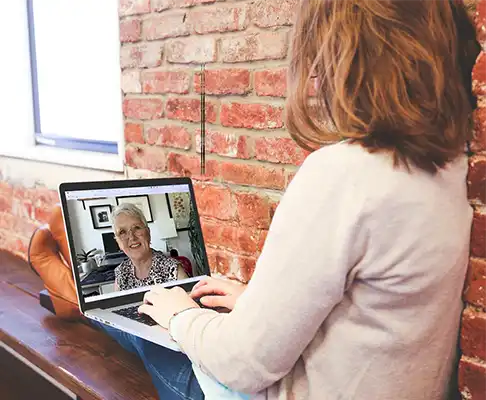Addiction Treatment and Drug Rehab in Oakville, Ontario
Residents of Oakville who are struggling with drug or alcohol addiction have access to a variety of trusted addiction treatment options. From publicly funded clinics and hospital-based programs to private residential rehabs, services are available to meet different levels of need and budget.
Access to Addiction Medicine for Treatment
Many services are OHIP-covered, although some counselling or medications may cost extra.
An important local resource is the Integrated Addiction Medicine Clinic (IAMC) at Oakville Trafalgar Memorial Hospital. This program delivers medical detox support, counselling, overdose prevention, and referrals to community-based services.
In addition, the Halton Rapid Access Addiction Medicine (RAAM) Clinics offer flexible in-person and virtual care without requiring a referral—making them an excellent choice for those seeking immediate support.
Private Addiction Treatment
For those looking into private addiction treatment, several facilities nearby provide residential and outpatient programs. Options like centres offer accredited inpatient rehab in Toronto with virtual outpatient programs available to Oakville residents. Many have an evidence-based approach, including medical detox, counselling, and aftercare support. Similarly, others offer 24/7 inpatient care, medical detox, individualized therapy, and specialized programs for different groups—all without lengthy waitlists.
Typical addiction treatment paths in the Oakville area include detox, inpatient programs, outpatient or IOPs, and aftercare support. Each step plays a role in building a foundation for lasting recovery.
1 888-488-8434
Get immediate
help for addiction.
Medical & Non-Medical Detox
Detox is often the first step in recovery. A medical detox is supervised by healthcare professionals who provide medications to ease withdrawal symptoms and ensure safety, especially for alcohol, opioids, or benzodiazepines. In contrast, a non-medical detox—sometimes called social detox—focuses on supportive care without medication. While this may be suitable for milder cases, anyone at risk of severe withdrawal should seek medical detox to avoid complications.
Checklist: Medical & Non-Medical Detox
- Medical detox with professional supervision
- Medications to ease withdrawal symptoms
- Safe monitoring for alcohol, opioids, or benzos
- Non-medical (social) detox with supportive care
- First step toward rehab and recovery
Inpatient (Residential) Programs
Inpatient rehab provides 24/7 care in a structured setting, ideal for those needing intensive support. Clients live at the facility and follow a daily schedule that includes therapy, counselling, group sessions, and wellness activities. Stays typically range from 30 to 90 days or longer, offering a safe, focused environment to build a strong foundation for recovery.
Checklist: Inpatient Programs
- 24/7 care in a structured environment
- Daily schedule with therapy and counselling
- Group sessions and peer support
- Wellness and life-skills activities
Outpatient & Intensive Outpatient Programs (IOPs)
Outpatient treatment offers flexibility for people who cannot step away from work, school, or family life. Clients continue living at home while attending scheduled therapy, counselling, and group sessions.
Intensive Outpatient Programs (IOPs) provide more frequent sessions and structured care, often used as a step-down from inpatient rehab. Both options give individuals access to professional support while maintaining daily routines.
Checklist: Outpatient & IOPs
- Flexible scheduling for work or family life
- Live at home while attending therapy
- IOPs with more frequent, structured sessions
- Step-down option after inpatient rehab
- Lower cost than residential programs

Aftercare in Oakville
Aftercare is a vital part of long-term recovery. Once formal treatment ends, ongoing support helps individuals maintain sobriety and prevent relapse. Aftercare may include one-on-one counseling, group therapy, relapse-prevention planning, 12-step or peer-support meetings, and regular check-ins with a recovery coach or counsellor. Many rehabs also provide alumni programs to connect clients to a supportive community. With a solid aftercare plan, individuals are better equipped to handle daily challenges and stay on track with their recovery goals.
Checklist: Aftercare Services
- Ongoing one-on-one counseling
- Group therapy and peer support
- Relapse-prevention strategies
- 12-step or non-12-step meetings
- Recovery coaching and alumni programs
Choosing the Best Path Forward
Selecting the right drug or alcohol rehab in Oakville depends on the individual’s unique needs. For someone who requires quick access to medication and basic support, starting at a RAAM clinic or hospital program may be the right first step. These services can stabilize withdrawal symptoms and provide immediate counselling.
For individuals who need a more structured environment and constant care, a private residential rehab often provides the best chance at long-term recovery. These programs include daily therapy, group counseling, and personalized treatment plans in a supportive setting. Although there are costs, private rehabs typically have shorter wait times and a wide range of therapeutic approaches.

Outpatient and Virtual Care
If work, school, or family responsibilities make inpatient care difficult, outpatient and virtual programs can be effective alternatives.
These allow clients to continue their daily lives while attending scheduled counselling and therapy sessions.
The most important step is to seek help early. Families and individuals can receive guidance, a confidential assessment, and tailored recommendations by speaking with a referral counsellor.
With the right treatment plan, lasting recovery is possible—and life free from addiction is within reach.
In Short
About Addiction Treatment in Oakville
- What types of addiction treatment are available in Oakville?
Oakville offers a full range of services including medical detox, inpatient (residential) rehab, outpatient and intensive outpatient programs (IOPs), and aftercare support. Options include both publicly funded and private treatment centres. - How long does drug rehab in Oakville usually last?
The length of treatment depends on individual needs. Detox typically lasts 5–10 days, while inpatient rehab can range from 30 to 90 days or more. Outpatient programs may run for several weeks to a few months, followed by ongoing aftercare. - Is private rehab better than public rehab in Oakville?
Both have benefits. Public rehab is government-funded but may involve wait times. Private rehab usually offers faster admission, more individualized care, and a wider variety of therapies, but it does involve a cost. - Can I work or attend school while in treatment?
Yes, outpatient and intensive outpatient programs (IOPs) are designed for people who need flexibility. These allow clients to continue with work, school, or family responsibilities while receiving treatment. - Does OHIP cover addiction treatment in Oakville?
Many services such as RAAM clinics and hospital-based programs are covered by OHIP. However, some counseling services and most private rehab centres are not fully covered, so additional costs may apply. - How do I know which rehab is right for me or my loved one?
The best rehab depends on the severity of the addiction, health needs, budget, and personal circumstances. Speaking with a referral counsellor can help you get an assessment and personalized recommendations for the most suitable program.

